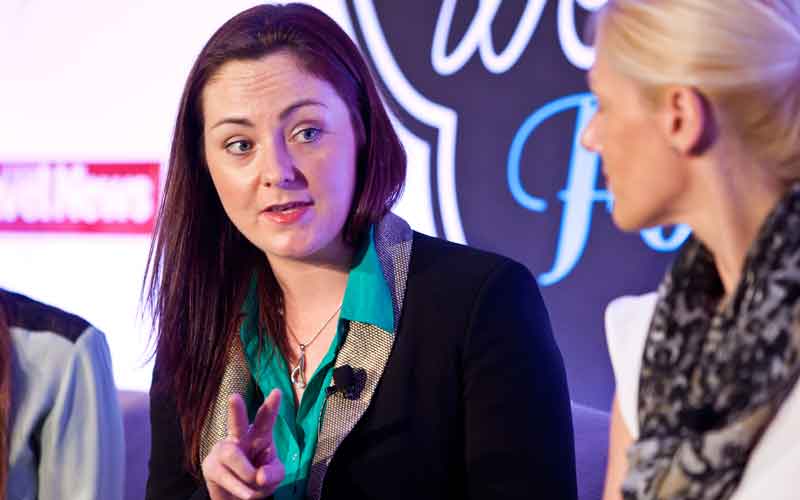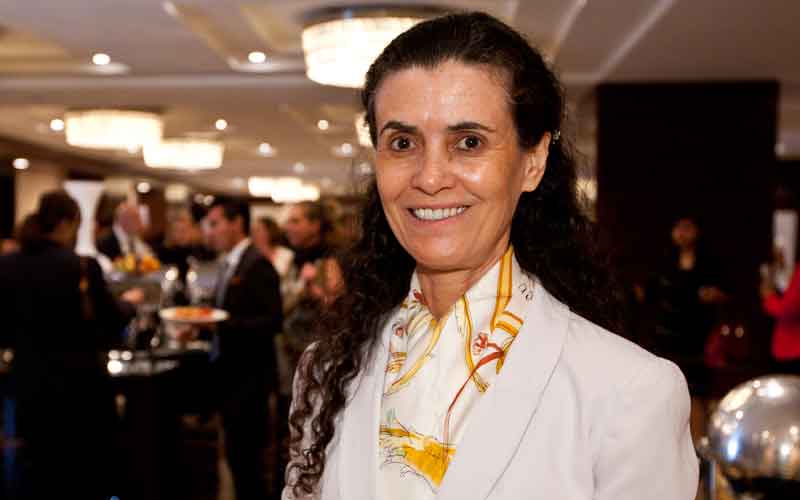Hotelier Middle East spoke to Sarum Trading’s senior brand service manager Sarah Dalton about the company’s holistic and organic approach to skincare.
Tell us about Sarum Trading.
Sarum was founded five years ago by Susan Gorman, who has had many years of experience in the industry and she really saw a gap in the market for something she felt very passionate about, which was sustainable and organic and natural brands. So we started with Neom and Sodashi, which are now two very established brands in the markets. Neom being more home fragrance, retail with a small body treatment attachment; Sodashi being one of the most premium skincare brands in the market and well known for its organic ingredients and packaging. From that we really built on, taking on brands that were if not organic, as natural as possible. We also look at sustainable packaging as well – how the ingredients are produced. For one of our brands, all the materials for packaging is produced in a factory that is wind-powered, so little things like that really catch our attention. As many of our ingredients as possible are fair trade, a lot of them are toxin free, synthetic free, paraben free, fragrance free... these are all things that really mean a lot to us.
We now have 11 brands, which range from spa brands that have a high number of facial and body treatments, down to very niche brands. We have a spa jewellery range, children’s nail polish which is toxin-free and washes off, a sun care line; we've got a very varied portfolio of brands.
How are your brands different to others in the market?
The vast majority of our brands are certified organic or use organic and natural materials. A lot of people get confused between natural and organic. Natural is where you have ingredients that are grown naturally in the wild that are very healthy, but because they are grown in the wild in their natural environment, we can’t 100% promise you that they've never come into contact with a chemical in their life, but they are still very natural; whereas organic ingredients tend to be grown in a very controlled environment, so we know that no synthetics or chemicals have come into contact. Also, with any brand that goes the natural or organic route, it’s a given that they are fair trade. These are the brands that care about the people that are producing the ingredients, they care about sustainability. You find that people who are green tend to be very passionate about being green; it’s never really a gimmick. For instance, one of our newest brands – Red Flower – they receive all their lavender from a women’s shelter in South America and their main income is from the lavender field at the back of the compound. These brands also inspire us to be more sustainable and to rethink constantly what we do to be as fair trade as possible.
What has the reception been?
The reception has been amazing. I think a couple of years ago, it was considered a trend, but these are not trends – a trend is something you associate with things coming in and out of fashion. I don’t think organic or natural will ever go out of fashion. It’s something that’s here to stay, based on education. It’s never going to be unfashionable to be healthy – that’s what the whole spa industry is about. So the reception has been great and working with partners who are passionate makes our jobs so much easier. Of course, you come across the doubters who think it doesn’t work as well or who think it’s too expensive, and we usually take that on a case by case basis and prove to them that they are incorrect. Going organic doesn’t have to mean it’s more expensive; 15 years ago it probably was a more expensive option because the raw materials are more expensive than synthetic ones. But nowadays I think organic and natural brands have become very competitive and when you do a price comparison in the market, there’s very little difference. And I've seen these products get phenomenal results on ageing, pigmentation, acne.

| Advertisement |
How do you change people’s mindset about natural and organic products?
The first thing we do is get people to try our treatments – that’s a big part of it – give them the products to sample, offer a treatment. I find that most people who tend to argue a lot against organic are people who have been in the industry for a very, very long time. They've worked with a brand for a very long time, they know how it works – it might not necessarily be natural, but they know how it works and they love it. But we explain that there is a lot of research out there to show that a lot of people are becoming highly sensitised and highly sensitive to chemical ingredients.
Tell us about the recycling scheme that Sarum has launched.
We are launching our Green Initiative Project – all our brands use recycled materials in their packaging and a lot of them use glass packaging where possible. When we don’t use glass, we use a material called PET 1 plastic – it’s very easy to recycle and there are no chemicals that seep out of it. What we are doing is we want to encourage our clients to start recycling and make it easier for them to go green. So we are launching an initiative, where we will incentivise our clients and customers to send back the bottles and the packaging to us. We will then organise with the brands to send the packaging back to them to be recycled. This will be launched probably within the next month. It’s taken a little time because we have 11 brands to work. We’ll start probably with our five biggest brands – Sodashi, Neom, Suki, Elemental Herbology, and Sundari – but the overall goal is to do it with all our brands. Again, this is another way Sarum can facilitate our clients becoming greener because it shouldn’t have to be a big deal to be greener; it should be so simple and natural. This is just the start; we want to bring in more initiatives like using soy vegetable ink on invoices.
What other news is there from your company?
We are launching two new brands in the market. One of our brands is called Red Flower, it’s from the US. It’s completely unlike anything else in the market – everything is culturally based. The lady who founded it wanted to create something that was visually stunning, that was very sustainable, and that pulled on different cultural aspects of the spa. They've got a beautiful hammam range, for which there is a huge gap in the market here. There's very few hammam brands at the moment – Red Flower’s approach is quite different – it can be used in Turkish or Moroccan hammams. They've also got a Japanese range that is based on the Japanese bathing ritual. They also have a facial range, and what is unique about it is that most of the ingredients are sourced from the Antarctic.
Then we have Omorovicza, which is from Budapest. In Hungary, they have thermal springs which are very high in minerals that have healing effects and are anti-ageing. So the founders of Omorovicza decided they wanted to utilise these ingredients and these benefits to create a brand. So they devised a very advanced mechanism of distilling the minerals from the water and putting them into their products. So all the products are based on the elements and the minerals of the thermal springs in Budapest. Another aspect of the brand is that it has a beautiful gold range – they have gold treatments that use colloidal gold particles, and this also has a very strong healing and anti-ageing effect on the screen.










 Search our database of more than 2,700 industry companies
Search our database of more than 2,700 industry companies









